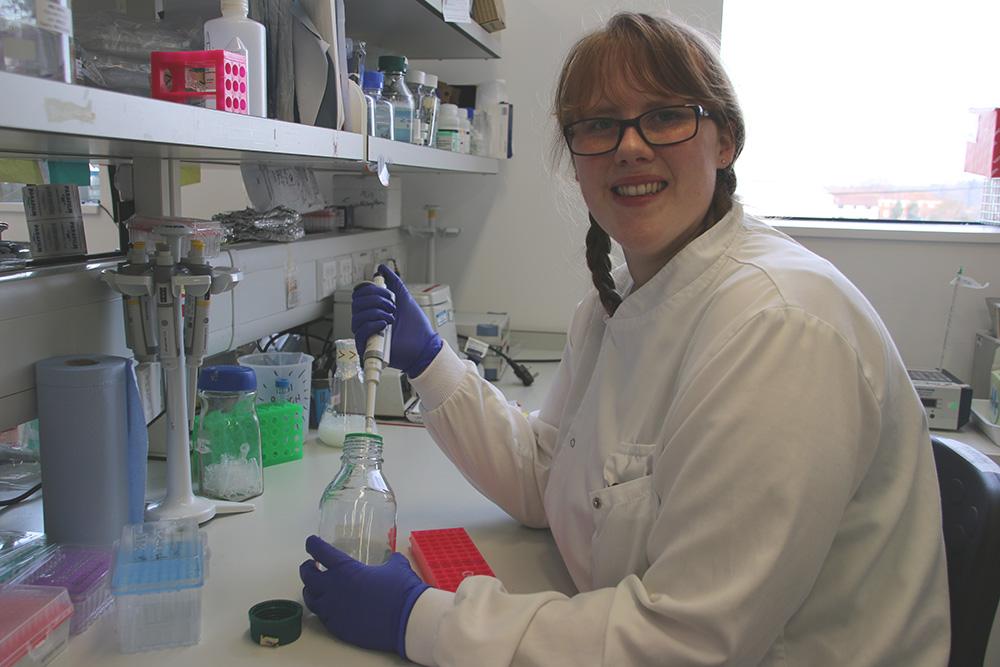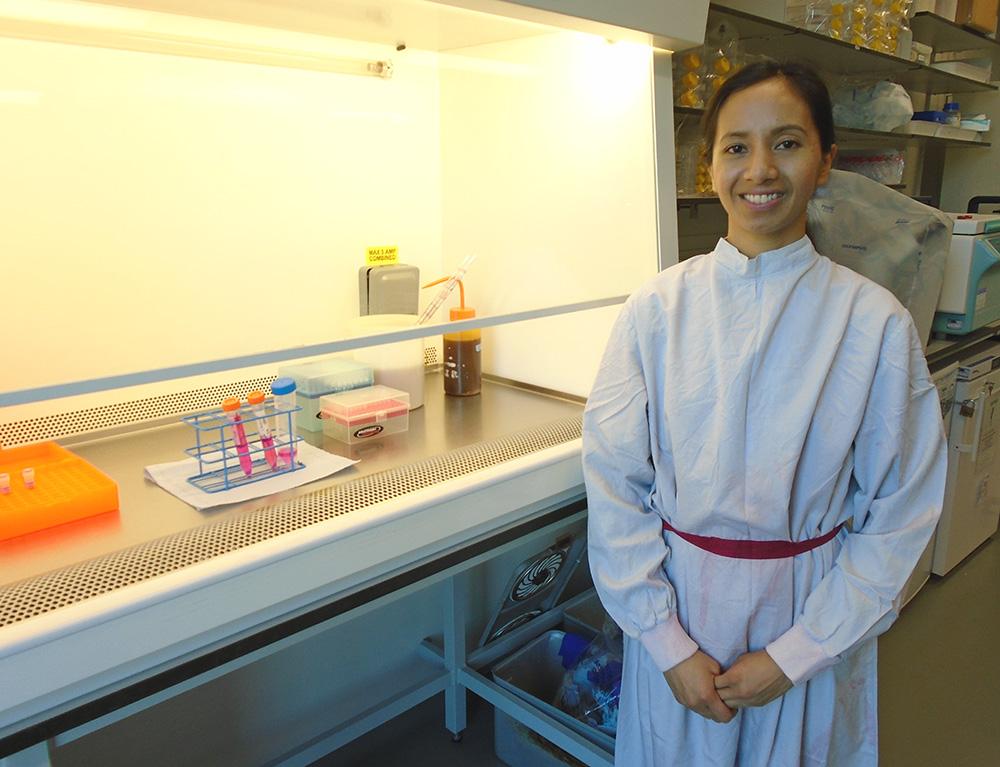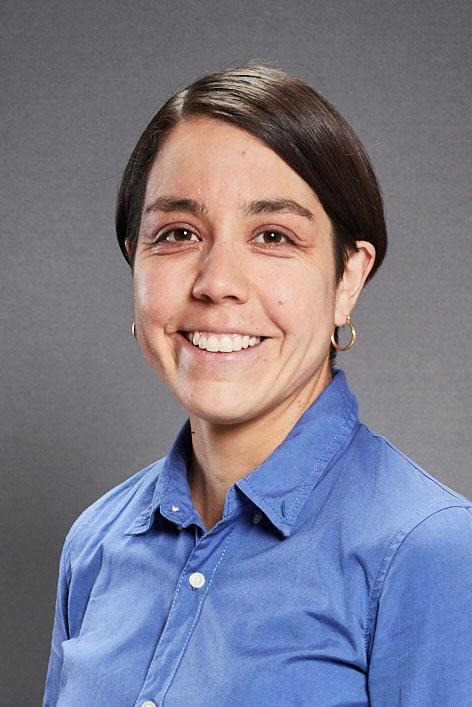To celebrate the 8th International Day of Women and Girls in Science, we shine the spotlight on three of our female scientists to find out what inspired their career in research and what advice they would give to other women looking for a career in science.
Abigail Hay – Research Scientist

What do you research?
I’m a research scientist working in cattle immunology. My work aims to isolate antibodies that bind foot-and-mouth disease virus (FMDV) so we can better understand how antibodies contribute to protection against FMDV.
What do you enjoy the most about your work?
I love my job because I get to answer questions that nobody else is researching. I’m learning all the time and discovering new things about how the immune system works.
What inspired you to get into this field?
I grew up in the Scottish Highlands and my family comes from a farming background, so I grew up around livestock. As I got older I became more intrigued by how the immune system works, and how genetic variation generates diversity. In my second year of University, a farming connection invited me to his farm to watch embryo transplants in sheep. That was the moment where my farming background and my scientific interests came together, and I realised that I could have a job researching genetics or immunology in farm animals.
Do you have any advice for other women looking to get into this area?
Don’t let your head tell you that you can’t in the face of evidence to the contrary.
Dr Amanda Corla – Laboratory Analyst

What do you do?
I work in the Non-Vesicular Reference Laboratories, formed by a team of dedicated scientists who support the global protection of animal health and eradication of livestock diseases that have a severe impact on animal welfare, food security and livelihoods. We are a national capability, ISO/IEC 17025 UKAS accredited, working in collaboration with Defra, WOAH, FAO, APHA and the EU, as well as with internal and external research groups.
The National Virology Centre, known as the Plowright building, is a world-renowned high- containment facility. I spend most of my working day in the Restricted Area within state-of-the-art laboratories that are well-equipped, spacious, and bright with an abundance of natural light, thanks to conscientious design. The Reference Laboratories are busy and dynamic as we work on many viruses including bluetongue virus, African horse sickness virus, Epizootic haemorrhagic disease virus, African swine fever virus, capripoxvirus and peste des petits ruminants virus. We perform pre-movement and post-import diagnostic testing on samples received throughout the week along with frequent testing of surveillance samples, report cases and proficiency testing panels. I am responsible for the isolation and propagation of viruses and as a member of the European Virus Archive Global, I work on the production of high-quality virus isolates for international diagnostic development and vaccine research.
What do you enjoy the most about your work?
I enjoy being involved in an area of science that impacts so much of the world. Since the pandemic, virology as a whole has become a more highly regarded and appreciated practice of which there is now a greater awareness and I am proud to be part of this world-changing discipline.
Teamwork is an important aspect of my work and I love being part of a fantastic group of friendly and diverse people. Collaborating with others has opened up new opportunities so I'm always involved in exciting research, validation projects and event organising that really enhance my role. I particularly enjoy training scientists from around the world, all of whom come from different walks of life. Interacting with others and passing on my knowledge is a fulfilling and motivating experience and is something that I feel passionate about. It is important for me to know that my work makes a difference on a larger scale.
What inspired you to get into this field?
I come from a family in which both my parents have a background in the medical field so my interest in science naturally grew since the foundations were laid out from a very early age. I wanted to move outside of my comfort zone after my PhD during which I focused on the vascular ingression in the embryonic vertebrate brain. I looked towards virology as I have always found this to be a fascinating field but one with which I had limited experience. I was ready to take on the challenge, excited to learn more and gain new skills. I believe that change is important for growth, and it is the one thing that brings progress.
Do you have any advice for other women looking to get into this area?
Surround yourself with excellence and build a network in the field. Work on something that inspires you and reach out to others as this will open up more opportunities and new avenues to explore. Believe in yourself and do not be afraid to try new things. Finally, once you have found what you are passionate about and what you are good at, work hard, make an impact, and you will have a fulfilling career.
Dr Georgina Limon-Vega – Epidemiologist

What do you do?
I am a vet and an epidemiologist. The core of my work is trying to understand which factors increase (or decrease) the likelihood of animals becoming diseased, the impact these diseases have on people’s livelihoods and which strategies would be more effective to control them, taking into consideration the local circumstances.
My work combines field and computer-based activities. It involves designing field studies, coordinating teams in the field for data and sample collection, conducting data analysis, and summarising results and recommendations. In all stages it involves close collaboration and communication with field teams, veterinary and health services, and scientists in the lab.
What do you enjoy the most about your work?
I like that it varies every day and that every project is a different challenge. I really enjoy the fieldwork component, but I also like the analysis part where I try to make sense of the data and observations in the field, very often generating new hypotheses and new questions.
What inspired you to get into this field?
Animals are key for people's livelihoods and by understanding and controlling diseases, I’m hoping to help improve people’s lives and animal welfare. In some places having healthier animals mean children can have access to milk or meat and evenaccess schools. Small ruminants and chickens are mainly kept and looked after by women which means that controlling disease in these animals could also have a positive impact for the women that look after them.
Do you have any advice for other women looking to get into this area?
Veterinary and epidemiology are very broad fields. To work in this area most of the time you need a masters or specialization. Before you enrol in a postgraduate course, it is important to do work experience in different places and topics to explore what you like the most. And perhaps more importantly, be curious and open to learn from people coming from a range of backgrounds and paths in life.
